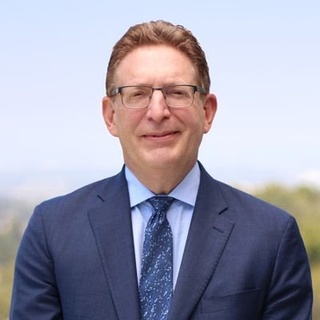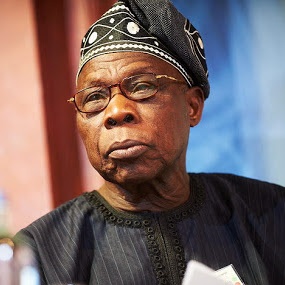News
Book interview: This Is How We Grow Africa
The book is being launched across the continent, including in places where the authors spent time to research this particular volume, such as Niger, Benin, Tunis and Senegal.

Special Advisor, The Brenthurst Foundation

Director, The Brenthurst Foundation

Former President and CEO of the NEWSEUM, USA

Former President of Nigeria; Chairman and Advisory Board Member Emeritus, The Brenthurst Foundation

Hopewell Radebe of News24 interviewed Greg Mills on The Brenthurst Foundation's latest work 'Making Africa Work.'
The book Making Africa Work is not a product of Western institutions telling African leaders how to consolidate democracy, liberalise their economies, invest in people and infrastructure, and ensure the rule of law – it is a handbook sourced by an African institution that is principally sharing practical ideas about how to create jobs rather than argue for economic growth policies as a matter of ideological faith.
It is written by Greg Mills, director at the Johannesburg-based Brenthurst Foundation, former Nigerian president Olusegun Obasanjo, Jeffrey Herbst, president and chief executive officer of the Newseum in Washington, DC, and Dickie Davis, a special adviser at the Brenthurst Foundation and managing director of Nant Enterprises.
The authors have used statistical analysis and case studies to describe Africa’s challenges when it comes to prosperity.
“We also focus on understanding the strategies that have been successful in reducing poverty,” says Mills.
He says many Asian and Latin American countries found themselves in circumstances similar to much of Africa today, so Africa does not have to reinvent the wheel – a lot can be learnt from others, which is what the book sets out to do.
Africa’s population boom
The book notes that the continent is likely to double its population to 2 billion by 2045 and that, by then, more than half of Africans will be living in cities. It says mostly young people will be connected with each other and the world through mobile devices. It argues that, if properly harnessed and planned for, the youth should be a positive force for change instead of being forced to migrate from the continent and turn into desperate refugees.
“Without decisive action and change in the way things are run, the demographic dividend could easily turn into a demographic disaster as people flood to cities in search of jobs and are disappointed,” Mills says.
“Demography and urbanisation will only be a positive force for change if properly prepared and planned for, which includes the cities finding the means to increase densification of housing and improve connectivity of people through mass transportation, and the use of technology and better ‘software’ or management systems. Fundamentally, it comes down to the creation of jobs.”
Fostering the private sector
Although most African heads of state bemoan the slow pace at which investors respond to a variety of investor-friendly incentives, Mills says African leaders have not fostered a healthy private sector and must ask why Africa receives so little foreign direct investment compared with Asia. Of global foreign direct investment inflows in 2014, estimated at $1.23 trillion (R16.3 trillion at the current exchange rate), Asia received nearly $600 billion and sub-Saharan Africa attracted just $42 billion.
He says businesses in some African countries are incentivised to live off the patronage that the state provides because there are few other ways to make money.
“In this environment, the incentives for liberalising economies are outweighed by the benefits of keeping things just as they are because the elite are easily able to manage and deflect international or other disincentives designed to encourage change.
“If jobs are to be created, businesses must assume their proper role of generating investment and employment. And that means that business should not be seen as a threat, or a target for plunder, but as a long-term partner. To do that, systems have to change, as do attitudes,” says Mills.
Change the business model
He says the old “business-as-usual” approach of governments and leaders has to change if they are to cope with Africa’s pending population boom.
“Given Africa’s rising population and growing cities, inaction will ultimately end badly for all, even the elite. Africa’s leaders no longer enjoy the goodwill that their predecessors during the fights for independence did – they will be judged solely on what they have delivered to their constituencies,” says Mills.
He says the Arab Spring uprisings, Britain’s exit from the EU and the election of Donald Trump as president in the US show how previous barriers to politics are being removed, especially when it comes to money and access to traditional media. Today, tweeting 10 million followers costs nothing.
Mills says African electorates are exposed to ever increasing mobile connectivity rates. This is despite the manipulation of internet access by certain African governments, which illustrates that the authorities also understand, and know how to harness, the power of digital technology.
Lessons for South Africa
Mills says the book focuses on Africa, not just South Africa, although the authors spent a fair amount of research time investigating South Africa’s strengths and weaknesses.
“Whether it be in mining, industry or farming, where we look at examples, South Africans are world leaders, reflective of the strength of its diversity. Its democracy is also held up as an example of change and ambition,” says Mills.

He says South Africa has an effective unemployment rate nearing 40%, and its democracy is fragile. The lessons for South Africa, as elsewhere, are clear – the promotion of development and fighting corruption will not be successful without strengthening the institutions of the state.
“The aim of governance is, after all, to allow for less personal discretion, not more. And it’s not a question of whether individual leaders steal that defines the political economy, though their example can be morally important, it’s about whether their actions serve to strengthen or undermine institutions and their checks and balances.
“Finally, South Africa also falls into the same trap as other nations in Africa in terms of the failure of the execution of its myriad plans – and that reflects an absence both of the necessary political will and the direction of state institutions to this national purpose,” Mills adds.
Mapping reform
The book, therefore, urges each African country to devise a reform agenda that is appropriate for its circumstances.
“We argue that there has to be a premium on getting things done, rather than creating visions or developing plans, or even expecting salvation to come from outside.”
Mills says African leaders are mistaken if they believe that any estimate of likely international assistance will be enough to deal with their challenges in the near future, or that blaming the international community for insufficient aid will gain them any credibility among their citizens. Instead, they should concern themselves with the details of domestic reform.
The authors plan to produce a second edition that incorporates interim feedback and developments because “reform and job creation is a marathon without a finish line”.
The book is being launched across the continent, including in places where the authors spent time to research this particular volume, such as Niger, Benin, Tunis and Senegal.
The article was originally published on News24.

